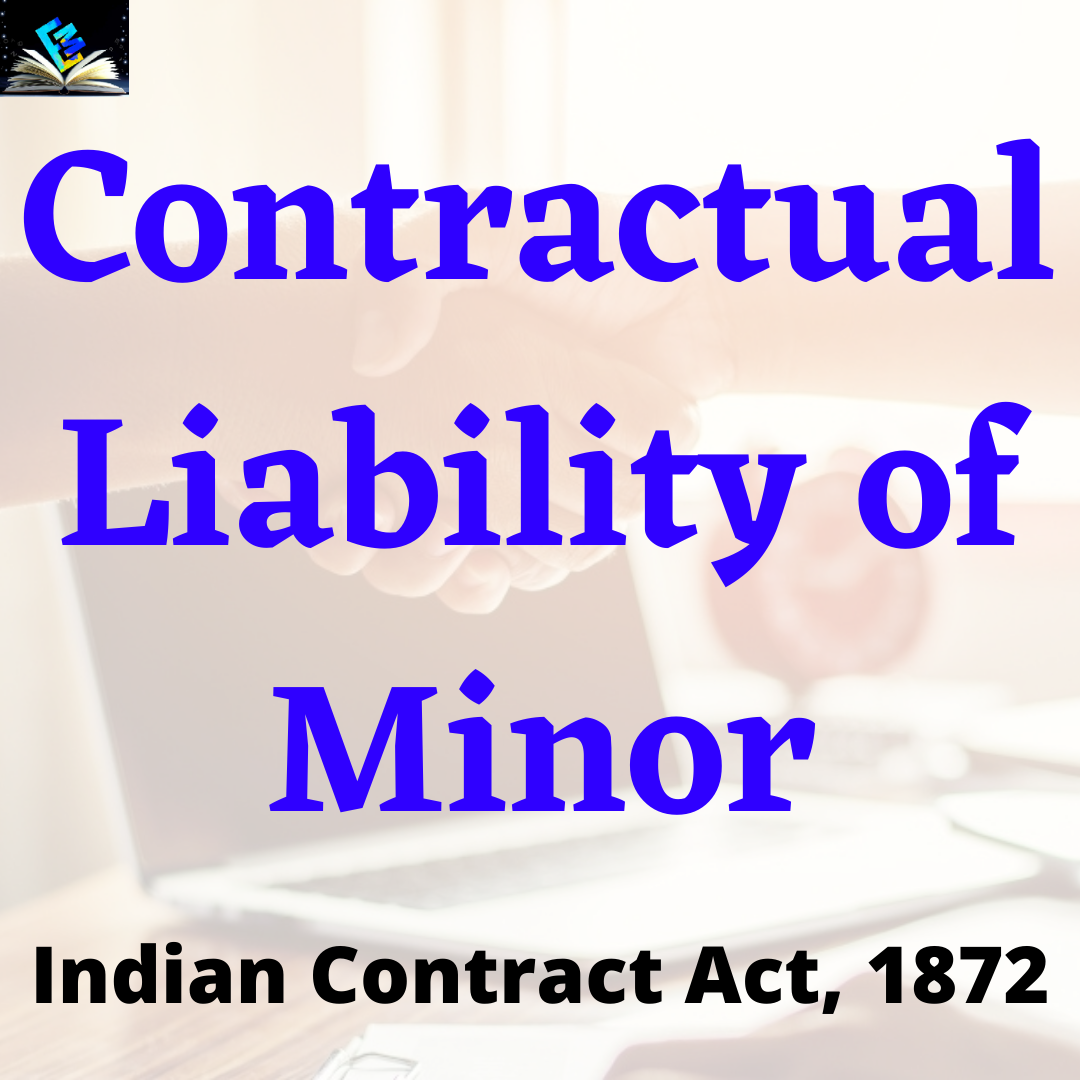
Contractual Liability of Minor under Indian Contract Act, 1872
AUTHOR : AKSHU RANA
Agreement with Minor
The Indian Contract Act, 1872 is an important legislation in the field of commercial law in India. It is basically responsible for regulating contractual relationships and obligations in India and is the key act regulating the contracts in India. It is applicable to all states in India. A common legal complexity often arises when an agreement with minor parties takes place. This is problematic because the Act does not permit such agreements outright.
Contractual Capacity
Section 11 of the Contract Act, 1872 explains the requirements of competency for entering into contracts. Individuals or entities can create contracts only if they meet these requirements. The very first such requirement is that of majority age.
The general rule of contracts is that every person, whether natural or artificial, can enter into contractual obligations.
Section 11, however, lays down certain exceptions. For example, minors, persons of unsound mind and those whom the law specifically disqualifies are the exceptions
The rationale behind Section 11 is that all parties to a contract must be competent to understand their obligations. Since a mature mind is important for this purpose, the law prohibits agreement with minor parties.
This is because minors would find it difficult to comprehend and fulfil their obligations. Hence, the law itself prohibits them from creating contracts.
Agreement with Minor parties
Section 11 states that only persons who have attained majority according to the law are competent to contract. Therefore, there must be a law that defines the age of majority.
In India, the Indian Majority Act, 1875 declares the age of majority of all persons to be 18 years. If a minor has a guardian or Court of Ward looking after him, his age of majority becomes 21 years. Hence, any contract with a party below the age of 18 years is invalid as per the Act.
A very important case that had explained this issue is Mohiri Bibi v. Dharmodas Ghose. In this case, a minor had borrowed some money from a money-lender by mortgaging his house.
The money-lender moved to take Possession of the minor’s house when he defaulted payment. The court, however, said since an agreement with minor parties is void, the money-lender could not enforce this contract.
Indian courts have repeatedly used this judgement to abrogate minors from contractual obligations. Hence, minors cannot enter into agreements unless some legal provisions allow them.
FOR MORE INFORMATION VISIT OUR SITE






